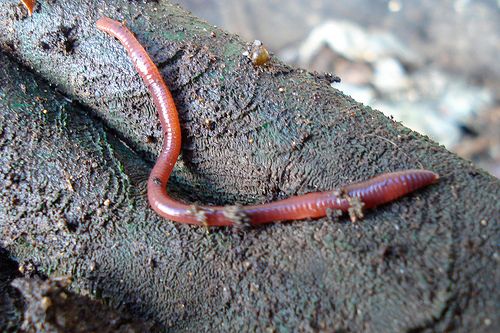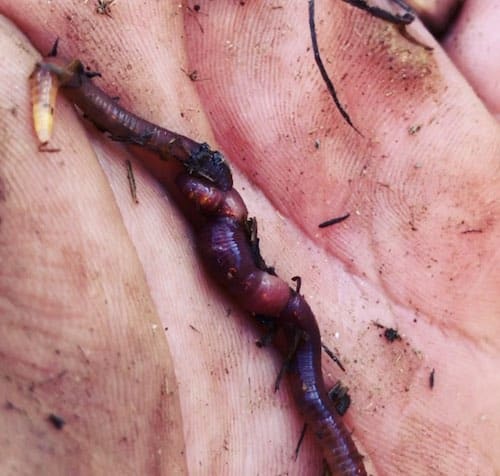Trust Red Wiggler Express for Reliable and Effective Lawn Care Options
Trust Red Wiggler Express for Reliable and Effective Lawn Care Options
Blog Article
The Unbelievable Globe of Red Wigglers: Increase Your Soil Fertility Today
These tiny yet effective organisms change natural waste into useful worm castings, substantially improving soil health and wellness and promoting sustainable techniques. As we check out the benefits of vermicomposting and the sensible steps to produce an efficient worm bin, the potential effect of these worms on your horticulture success becomes significantly apparent.
Understanding Red Wigglers
Red wigglers, medically understood as Eisenia fetida, are a species of earthworm that play a crucial role in improving dirt fertility. These worms prosper in organic-rich environments, such as garden compost stacks and decomposing plant product, where they consume natural waste and excrete nutrient-dense castings. Their one-of-a-kind anatomy, featuring a segmented body and a clitellum, allows them to duplicate rapidly and efficiently procedure huge amounts of organic matter.

The ecological significance of red wigglers expands beyond mere waste handling; they add to the dirt food web, fostering a varied neighborhood of microorganisms that better boost dirt health and wellness. Understanding the biology and actions of red wigglers is necessary for harnessing their complete possibility in lasting agriculture and horticulture practices.
Advantages of Vermicomposting
(Red Wiggler Express)Taking advantage of the power of red wigglers via vermicomposting offers countless benefits that considerably enhance dirt health and fertility. One of the primary benefits is the manufacturing of nutrient-rich worm spreadings, which are an excellent natural plant food. Red Wiggler Express. These castings consist of vital nutrients like nitrogen, phosphorus, and potassium, advertising robust plant development and improving crop returns
The visibility of worm spreadings boosts soil appearance, permitting for far better water retention and drainage. Red wigglers help break down organic issue, speeding up disintegration and reusing nutrients back into the dirt.
Vermicomposting likewise cultivates microbial activity, which is vital for a healthy soil environment. Beneficial bacteria prosper in the visibility of worm spreadings, assisting in the failure of natural products and improving nutrition schedule to plants.
Lastly, vermicomposting functions as an effective waste administration remedy, lowering landfill waste by reusing kitchen scraps and various other organic materials. This not just adds to ecological sustainability however also promotes a round economic situation within gardening and farming.
How to Establish a Worm Container
Setting up a worm bin is an uncomplicated process that can significantly improve your composting initiatives. Begin by choosing an appropriate container, which can vary from a commercially readily available worm container to an easy plastic or wooden box (Red Wiggler Express). Make certain the container has appropriate air flow; little holes in the cover and sides will facilitate air circulation
Next, create a bed linen layer to supply a comfortable environment for the red wigglers. This can be made from shredded paper, cardboard, or coconut coir, dampened to a wet, sponge-like consistency. Load the bin to around one-third full with this bedding material.
Once the bed linen is prepared, it's time to introduce the worms. Red wigglers grow in organic waste, so area them gently onto the bedding. Cover the worms with a light layer of added bed linen to aid them adapt.
Feeding Your Red Wigglers
Offering the appropriate food for your red wigglers is important for their health and the efficiency of your composting system. Red wigglers prosper on a varied diet plan, largely consisting of natural products such as vegetables and fruit scraps, coffee grounds, and shredded paper. These materials not just provide crucial nutrients but likewise add to the microbial task in the worm container, which is vital for the worms' food digestion.
It is necessary to stay clear of certain foods, such as milk items, oils, and meats, as these can attract insects and develop undesirable odors. Additionally, citrus peels and excessively zesty foods should be limited due to their potential to hurt the worms. A well balanced approach to feeding involves keeping track of Go Here the quantity of food presented to the bin, making certain that it is eaten within a sensible timespan to protect against excess waste buildup.
To advertise ideal food digestion, it is beneficial to chop or shred larger food items prior to adding them to the bin. This practice enhances the surface area for microbial action, assisting in quicker decay and improving the overall effectiveness of your composting system. On a regular basis observing the worms' feeding behaviors will certainly aid you readjust their diet plan as required.
Utilizing Worm Castings in Your Garden

(Lake Hickory Bait)Integrating worm castings right into your yard can be accomplished by mixing them into the dirt or utilizing them as a top clothing. The slow-release nature of these spreadings makes sure that nutrients are readily available to plants over an extensive duration, decreasing the need for artificial plant foods. Additionally, worm spreadings have valuable bacteria that advertise healthy and balanced soil ecosystems, improving the overall strength of your yard.
To maximize the advantages, objective to use around one part worm spreadings to three parts soil in your growing beds. Regular applications can bring about enhanced plant yields and much healthier plants, making worm spreadings a very useful resource for both amateur and knowledgeable garden enthusiasts alike. By utilizing this all-natural amendment, you can cultivate a thriving garden while adding to sustainable horticulture practices.
Final Thought
In conclusion, red wigglers exemplify the essential role of vermicomposting in improving soil fertility. Their capability to transform natural waste right into nutrient-rich spreadings dramatically enriches soil structure and supports microbial diversity.
Report this page